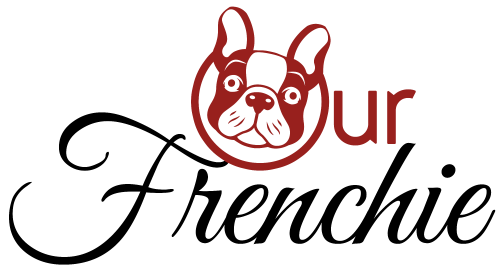About
How to Help a French Bulldog with Breathing Issues
Page Contents
French Bulldogs are beloved for their charming personalities adn distinctive looks, but their unique physical traits can sometimes lead to breathing difficulties. This guide aims to help concerned pet owners understand and address these issues, ensuring their furry companions lead comfortable, healthy lives. From identifying symptoms to exploring effective interventions, we provide practical advice and expert insights to support yoru French Bulldog’s respiratory health.Whether you’re a new owner or a seasoned enthusiast, learning how to manage these challenges is essential for the well-being of your four-legged friend.
Identifying Breathing Problems Early
recognizing early signs of respiratory distress in your French Bulldog can make a significant difference in their health and comfort. Its essential to be vigilant and observant of subtle changes in their behavior and physical condition. French Bulldogs are brachycephalic, meaning they have short noses and flat faces, which can predispose them to breathing issues.
Keep an eye out for symptoms such as:
- Increased snoring or noisy breathing: While some level of snoring is common, any noticeable increase in volume or frequency could indicate a problem.
- Labored breathing: If your dog appears to be working harder to breathe, especially during rest, this might potentially be a sign of respiratory distress.
- excessive panting: Panting is normal after exercise or in hot weather, but if it occurs in cool conditions or without exertion, it could be a red flag.
- Coughing or gagging: Persistent coughing or gagging, particularly after eating or drinking, may suggest airway obstruction or irritation.
Additionally, observe your dog for behavioral changes such as reluctance to exercise, restlessness, or anxiety, which might indicate discomfort due to breathing difficulties. Early detection and intervention can prevent more severe complications, so always consult with a veterinarian if you notice any concerning signs.Regular check-ups can also help in monitoring their respiratory health and ensuring your French Bulldog remains happy and healthy.
creating a Comfortable Environment
French Bulldogs, with their charming personalities and distinctive features, can sometimes face breathing challenges due to their brachycephalic nature. Ensuring a comfortable environment is crucial in mitigating these issues.Start by maintaining a **cool and well-ventilated space**. Overheating can exacerbate breathing difficulties, so use fans or air conditioning to keep the temperature moderate, especially during warmer months. Consider investing in a cooling mat or blanket to provide additional relief.
- **air Quality**: Enhance air quality by using air purifiers to reduce dust, pollen, and other irritants that can compromise respiratory health. Regularly clean your home to minimize allergens.
- **Humidity Levels**: Maintain optimal humidity levels. To much humidity can make breathing harder for your French Bulldog, so a dehumidifier might be beneficial in damp areas.
Creating a tranquil atmosphere is equally crucial. **Minimize stressors** by providing a quiet, cozy corner where your dog can retreat. This space should be free from loud noises and excessive activity. Incorporating soft bedding can also encourage relaxation and rest. By thoughtfully designing their environment, you can considerably enhance their quality of life and help alleviate breathing issues.
Choosing the Right Diet for Respiratory Health
- Prioritize High-Quality Protein: A diet rich in high-quality protein sources, such as chicken, turkey, or fish, can support muscle maintainance and overall health, indirectly benefiting respiratory function.It’s essential to choose foods that list a named protein as the first ingredient to ensure your French Bulldog is getting the best nutrition.
- Incorporate Omega-3 Fatty Acids: Omega-3 fatty acids, found in fish oil and flaxseed, are known for their anti-inflammatory properties. By reducing inflammation, these nutrients can help alleviate some respiratory issues, making breathing easier for your French Bulldog.
- Opt for Low-Sodium Options: Excessive sodium can lead to fluid retention, which may exacerbate breathing problems. Selecting low-sodium dog food can definitely help manage this risk and promote better respiratory health.
Additionally, maintaining a healthy weight is crucial for dogs with breathing issues. Obesity can put extra pressure on the respiratory system, making it harder for your French Bulldog to breathe comfortably. Consider feeding smaller, more frequent meals to prevent overeating and aid digestion. This approach can help keep your furry friend at an optimal weight, reducing the strain on their respiratory system.
Always consult with your veterinarian before making significant changes to your dog’s diet. They can provide personalized recommendations based on your French Bulldog’s specific health needs and ensure that the chosen diet supports their respiratory health effectively.
Exercise Tips for Better Breathing
Ensuring your French Bulldog gets the right amount of exercise is crucial for managing their breathing issues effectively. These dogs are known for their brachycephalic (short-nosed) structure, which can make breathing more challenging, especially during physical activity. Here are some tips to help your furry friend breathe easier while staying active:
- Choose Low-Impact Activities: Opt for activities that don’t overexert your dog.short walks in a cool, shaded environment are ideal. Avoid running or any high-intensity exercises that could lead to overheating and labored breathing.
- Monitor weather Conditions: French Bulldogs are sensitive to heat and humidity,which can exacerbate breathing difficulties.Plan walks during cooler parts of the day, such as early morning or late evening, and avoid exercising during extreme weather conditions.
- Use a Harness: A harness can be a better choice than a collar for French Bulldogs, as it reduces pressure on the neck and allows for better airflow. Ensure the harness fits well and is comfortable, promoting easier breathing during walks.
Always keep a close eye on your dog’s breathing during exercise. if you notice any signs of distress,such as excessive panting,wheezing,or fatigue,it’s important to stop and let them rest. proper exercise, tailored to their needs, can significantly improve your French bulldog’s respiratory health and overall well-being.
Effective Breathing Exercises
French Bulldogs, with their adorable flat faces, are prone to brachycephalic obstructive airway syndrome, which can make breathing difficult. Engaging your French Bulldog in gentle breathing exercises can definitely help improve their respiratory function and overall comfort.
- Controlled Walking: Take your French Bulldog on short, controlled walks in a calm environment. This light exercise can definitely help strengthen their respiratory muscles without overexertion. Keep a steady pace and avoid extreme temperatures.
- Deep Breathing Techniques: Encourage your dog to take deeper breaths by gently placing your hand on their chest and guiding them to breathe slowly. You can do this by mimicking deep breaths yourself,which they may instinctively follow. Ensure the environment is quiet and stress-free.
- Interactive play: Use low-intensity interactive toys that encourage your dog to be active without causing breathlessness.Toys that stimulate their mind and encourage gentle movement can be beneficial. Always monitor their breathing and take breaks as needed.
Incorporating these exercises into your French Bulldog’s routine can help manage their breathing issues, but always consult with a veterinarian to tailor activities to your dog’s specific needs. Regular check-ups are essential to ensure their respiratory health is maintained effectively.
When to Consult a Veterinarian
Recognizing the signs that indicate a need for professional veterinary intervention is crucial for the health and well-being of your French Bulldog. While some breathing issues can be managed at home, certain symptoms warrant immediate attention from a veterinarian. **Persistent coughing, wheezing, or labored breathing** that doesn’t improve with rest or home remedies are red flags. Additionally, if your dog exhibits **blue or pale gums, excessive drooling, or fainting spells**, these could be signs of severe respiratory distress or other underlying health issues.
It’s also important to watch for **changes in behavior**. If your typically active French bulldog suddenly becomes lethargic, refuses to eat, or shows signs of anxiety or discomfort, these may be indirect indicators of breathing difficulties. **Nasal discharge, especially if it’s bloody or thick**, can also suggest an infection or other complications that require veterinary assessment.
- **Increased respiratory rate**: More than 30 breaths per minute at rest is frequently enough a concern.
- **Noisy breathing**: While some snorting is normal,loud or unusual sounds should be evaluated.
- **Heat intolerance**: Difficulty breathing in warm weather could indicate a problem.
Prompt consultation with a veterinarian not only helps in diagnosing the issue but also in preventing potential complications. Early intervention can make a significant difference in your dog’s quality of life, ensuring they remain the playful, loving companion you cherish.
In Conclusion
addressing the breathing issues of a French Bulldog requires a blend of attentive care and informed action. By understanding their unique needs, consulting with a veterinarian, and implementing lifestyle adjustments, you can significantly enhance your dog’s quality of life. Remember, early intervention is key, and your proactive approach can make a world of difference. Embrace the journey with patience and love, ensuring your French Bulldog breathes easier and enjoys a healthier, happier life by your side.

